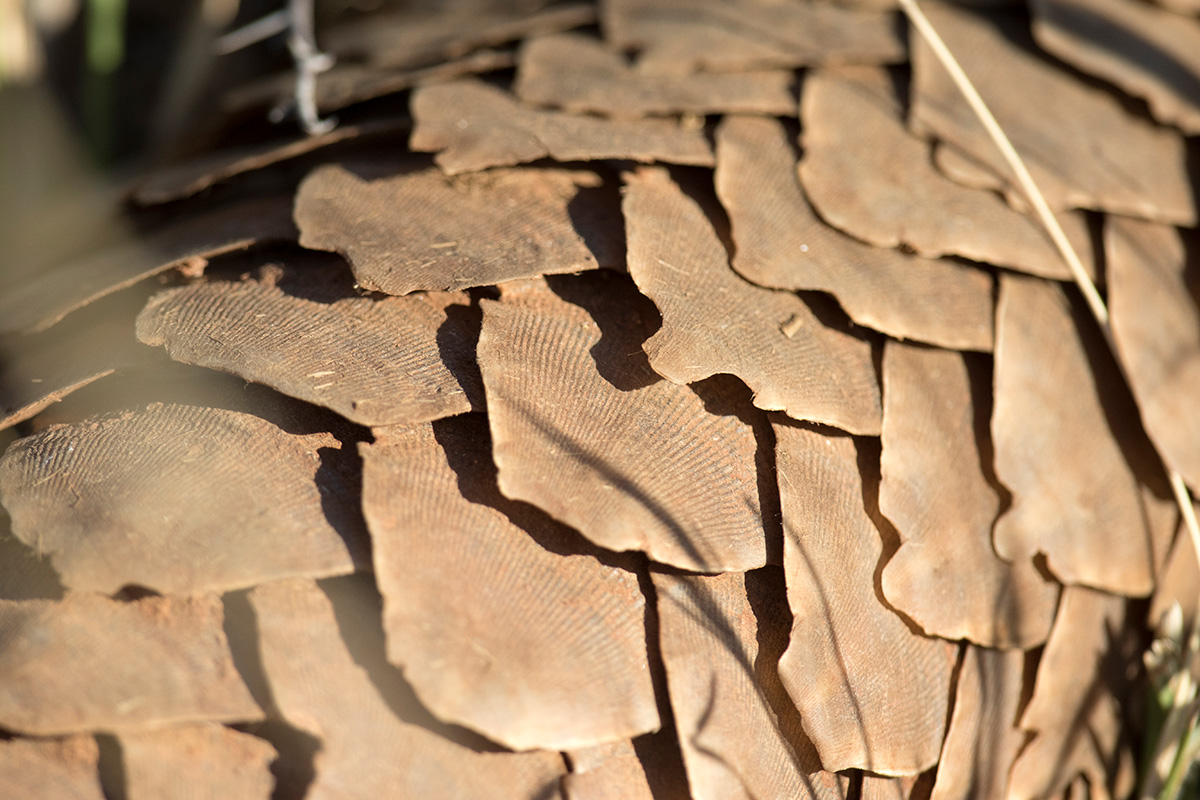Working to Protect Pangolins

Seeing a pangolin on safari is incredibly rare. There are wildlife guides in Tanzania who have worked decades without seeing one. If you’re fortunate enough to find this mysterious, armored creature, you’ll enjoy bragging rights among some of the most serious wildlife enthusiasts around.
We’re asking all our guests to share these special sightings carefully, however, and most importantly, not to post photos of the sighting itself online.
Animal Trafficking at the Highest Scale
The pangolin is the only scaled mammal on Earth. While this unique trait protects it from predators like hyenas and leopards, it has also contributed to making it one of the most highly trafficked mammals on the planet.
We’re asking our guests not to share their photos of pangolins because that information can potentially be used by poachers and wildlife traffickers to find these rarely-seen creatures. As animal lovers, conservation advocates and African Wildlife Foundation partners, this is one small way we (and you) can help protect the species.
Research suggests pangolins are worth more than $600 per kilogram on the black market. A pangolin can weigh anywhere from 1.5 to 33 kilograms. That sum can create a powerful incentive for poachers and traffickers.
“All eight pangolin species are now listed as threatened with extinction, largely because they are being illegally traded to China and Vietnam,” Professor Jonathan Baillie, Co-Chair of the IUCN SSC Pangolin Specialist Group, said.
Those eight types of pangolin include four Asian and four African species:
Africa
- Temminck’s ground pangolin – the only pangolin in Tanzania
- Giant Ground pangolin
- White-bellied pangolin
- Black-bellied Pangolin
Asia
- Chinese or Formosan pangolin
- Malayan or Sunda pangolin
- Indian or thick-tailed pangolin
- Palawan or Philippine pangolin
Each species is threatened to a different degree, but their threats are similar. Most significantly, they are trapped, traded and killed for cultural, medicinal or spiritual reasons. While Asian pangolin species are much closer to extinction, many predict the threat to African pangolin species, like Tanzania’s ground pangolin, will increase as Asian species dwindle and demand for them remains.
The Threat to Tanzania’s Pangolins
In Tanzania, as in many other countries across the globe, pangolins are captured so their scales and meat can be used for medicinal and superstitious reasons. Its nickname is “the doctor” because of the false notion that each piece of it can be used to cure some ill – whether that means collecting scales for good luck and rain or inhaling the smoke from burning scales to cure nosebleeds.
To be clear, the pangolin’s natural armor is composed of keratin plates, and keratin, which is a fibrous protein that also makes up rhino horn and human hair, has no medicinal value whatsoever.

Nonetheless, these beliefs create a market for pangolin trafficking locally and abroad. Experts estimated over 1 million pangolins had been captured in the wild and illegally traded between 2004 and 2014.
Unfortunately, pangolins are hard to track and catalog, so the total population for each individual species is unknown.

